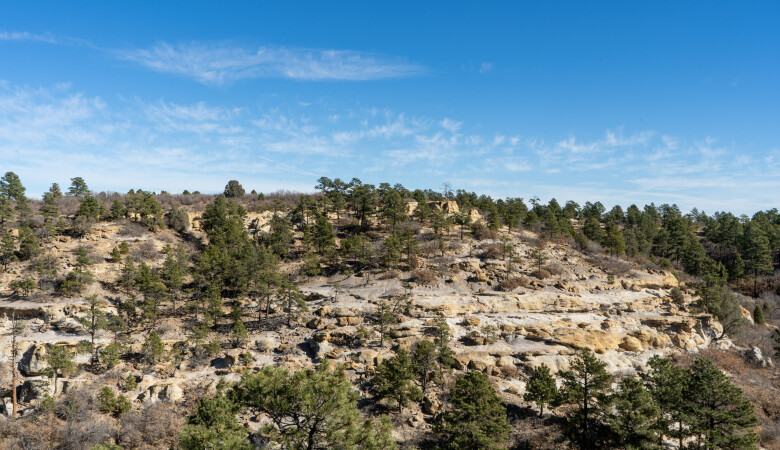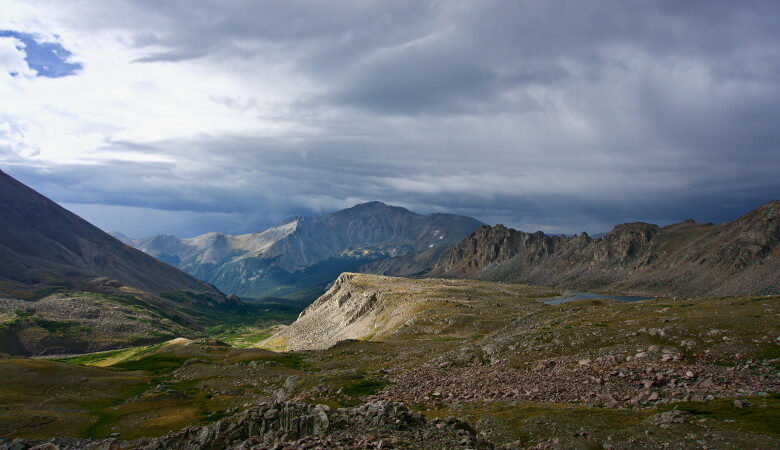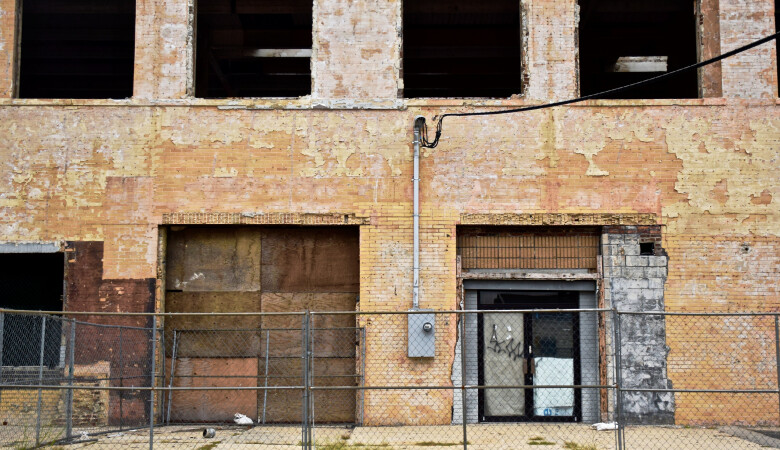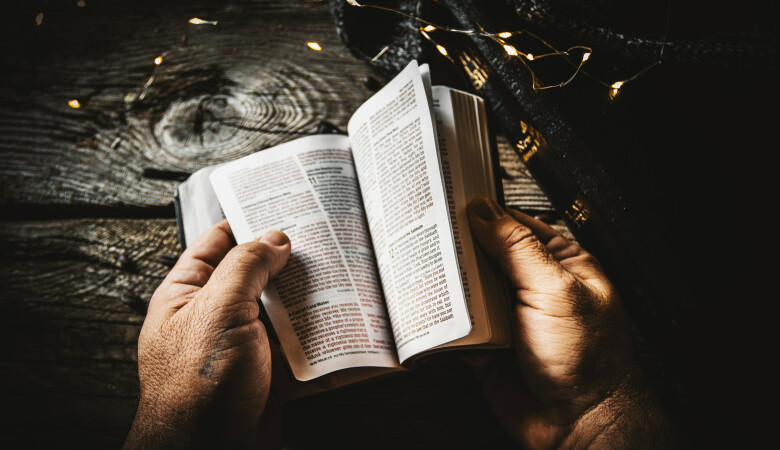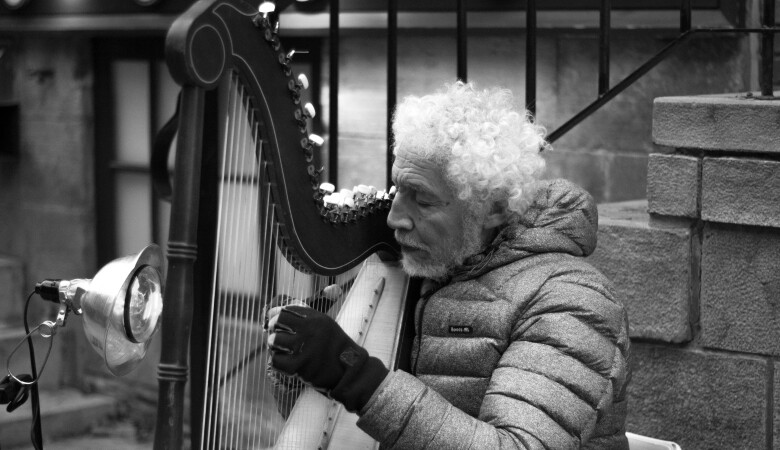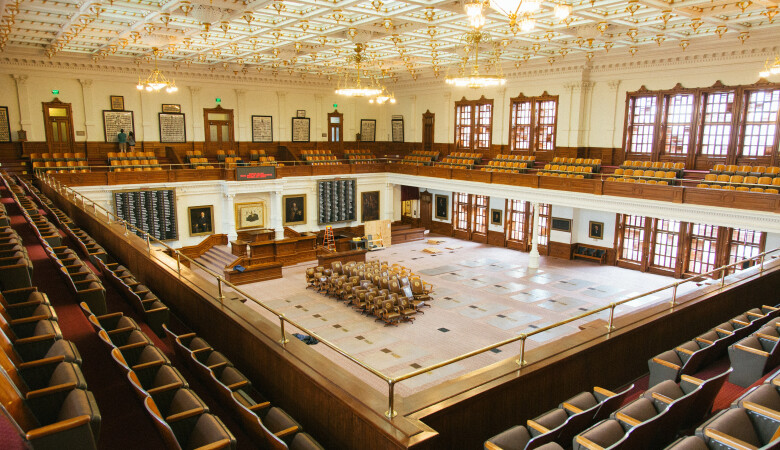An Astonishing Rescue, a Magnificent Building (Matthew Sermon 77 of 151)
May 13, 2007 | Andy Davis
Matthew 16:13-20
Introduction
In one of his most profound and triumphant statements in the Gospel of Matthew, Jesus said to Simon Peter, in Chapter 16:18, “I tell you that you are Peter, and on this rock, I will build my church and the gates of Hades will not overpower it.” It really is an astounding statement because it combines two images that don't ordinarily go together —that of an astonishing rescue and a magnificent building project. Now for myself, I love to read stories of heroism. I was reading recently about one of the most incredible rescues that occurred toward the end of World War II January 30th, 1945. 150 rangers specially trained commandos from the United States Army went 30 miles behind the lines enemy lines, in the Philippines, where the Japanese were still fighting for every square inch of territory. The US High Command was concerned that the Japanese might murder over 500 POWs held at the Cabanatuan POW camp, so they sent 150 rangers, 30 miles behind enemy lines to rescue 511 POWs. It was an incredible achievement. Then to lead them back over those 30 miles of enemy-held territory back to safety, which they did successfully — it was an incredible rescue.
But even this daring rescue, I tell you in all of the daring rescues that there have ever been in history, does not compare with what Jesus Christ is doing every single day in rescuing sinners and bringing them to eternal life, through faith in Christ and using us to do it sending us into enemy territory to bring them back. He says the gates of Hades will not prove stronger than it, more about that later. He sends us into enemy territory, and yet here is this other image, the image of a building on this rock, “I will build my church.” There is erected inside our mind an elaborate glorious structure for worship. Like the Cathedral at Notre Dame, which took 185 years to build from the 12th century to the 14th century. All of those stones were quarried from gypsum right around Paris and built up. And for 185 years, expert craftsman, stone masons and craftsmen, and stain glass carpenters and architects erected this incredible structure which you've seen perhaps in photos, if not in person. The Cathedral of Notre Dame is a center of French culture, of French literature, of French history. It's even the zero-kilometer point of the entire nation, all the miles to Paris, are marked from a stone right in front of the cathedral of Notre Dame. Certainly, the Cathedral of Notre Dame took exquisite skill to build, a lot of courage, a lot of money, some people died while building it. But I tell you again as glorious and majestic as it is, it doesn't compare with the Church of Jesus Christ, which is taken far greater courage, far greater skill, far greater investment of all resources that are valuable in the human race. Over 2000 years Jesus has been building his church.
Now I have begun my sermon in a strange way. With two very different images and with a Mother's Day debut. You have these images coming together in this text of an astonishing military rescue and that of a building rising up to the glory of God. How do they fit together? Imagine, just in your mind's eye, the most incredible building project in history going on during the midst of the fiercest battle in history. The building materials for the church are over the walls and in enemy territory, and the skilled craftsmen that are going to be building that cathedral to the glory of God have to be commandos with military courage to go into enemy territory, quarry out the living stones, and safely get them to the building site where they are erected to the glory of God. You have a picture then of what Jesus is doing in Matthew 16:18 when He says, "I will build my church and the gates of Hades will not prove stronger than it."
Let's get our bearings here, in some context. Last week we looked for the first time at this section of Scripture. In Mathew 16:13-20, we saw the most important question you'll ever answer. Remember that Jesus had gone somewhat on retreat with his disciples to Caesarea Philipp. He wanted to spend some time with them, build into them pour into their lives, and so when He came there, he asked them the most important question. He began by getting a sense of a survey of opinions of popular opinions. “Who do people say the Son of Man is?” That's Jesus, the son of man, and they replied, "Some say John the Baptist, some say Elijah or Jeremiah and some, one of the prophets.” “But what about you,” he asked. “Who do you say that I am?” In a world full of opinions and a world full of questions, this one remains the most important question you will ever face as we mentioned last week. Who do you say that Jesus of Nazareth is? As we mentioned last week, the destiny of your soul depends on your heart-filled answer to that question.
Simon Peter gave the correct answer. He said, "You are the Christ, the Son of the living God.” Jesus said to him, “This wasn't revealed to you by man but by my Father in Heaven.” The correct answer must be revealed to you by almighty God by the power of a spirit through the ministry of his word. That's how we discover who Jesus is. That was last week. But Jesus goes on from Peter's saving confession to make an incredible statement about the church. Look at verses 18 and 19, again, “… and I tell you that you are Peter, and on this rock, I will build my church and the gates of Hades will not overcome it. I will give you the keys of the kingdom of heaven and whatever you bind on earth will be bound in heaven and whatever you loose on earth will be loosed in heaven.”
The Foundation of the Church Through the Apostles and the Prophets
So, we come to the question of the foundation of the church, on what is it build, and it's interesting that He begins by changing Peter's name. Now this had already happened, but he's reiterating the change that has occurred in Peter's name. A change of name, I think, gives a sense of ownership and a sense of the transforming power of Christ in the life of an individual. Jesus owns Peter, He rules over him, He has the right to change his name. It's just like what happened with Abram going over to Abraham, Sarai becoming Sarah, Jacob becoming Israel. The book of Revelation 2: 17 says, "To him who'll overcomes, I will give a white stone with a new name written on it, known only to him who receives it." If we overcome by faith in Christ, we're going to get a new name. It's a sense of ownership and of a transformation of our very natures. Made like him, we rise. We will become new creations completely, including our resurrection bodies. The change of name, I think in Peter's case, signifies a divine work of God's grace in Peter's heart. He will be a major part of the church, and Christ intends to equip him for it. He's going to prepare him to be what He wants him to be, for the history of the church.
However, these words have caused major consternation in the history of the church and a great deal of misunderstanding. “I tell you that you are Peter, and on this rock, I will build my church and I'll give you the keys of the kingdom of heaven.” For millennia and a half, the Roman Catholic Church has gone back to this statement by Jesus to the apostle Peter and said that Jesus was investing him papal authority and papal succession. In this moment, He gave him papal authority, the right to rule over all affairs, for the Christian church in Christ's place. The symbol of the Vatican is the Cross Keys. The keys, they're going right back to this statement in Matthew 16, a symbol of the Vatican and its authority and powers that Jesus entrusted to Peter, the keys. So, he has papal authority as the Bishop of Rome. Furthermore, there's also this idea of papal succession. That once Peter died, and went on to his eternal reward, he gave his earthly position to his successor, like a king on his death bed giving it to the Crown Prince. There is this idea of papal succession, so the present Pope has authority over all matters to do with the church in the entire world. That is Catholic teaching.
However, I believe that Jesus is not doing that here, I don't think that's what He's doing with Peter. He's not entrusting to Peter authority over all spiritual things, so that Peter would rule somewhat like an earthly potentate over the church. There's a play on words going on here. There are two different Greek words, very similar in meaning. Both of them could be translated “rock”. He says, "You are Petros and on this rock, Petra will build my churches... Changing the terminology slightly to show that there's not a one-to-one correspondence between Peter and the rock. So, for me, I want to know what is Christ's church built on? What is the foundation of Christ's church? Some has said it's Peter's confession and, on that rock, the rock of confession, you are the Christ, the Son of Living God, I will build my church. But I don't think so, although I do think it's essential that we all make that confession in order to be saved, but I don't think that's what He has in mind. I think it says Peter, and the other apostles, were to play a very significant and unique role in the history of the church, a role that we don't play. What then is the foundation of Christ's church? Paul the apostle puts it this way in 1 Corinthians 3:11, “No one can lay any foundation other than the one that is already laid and that is Jesus Christ,” so Christ is the foundation of his own church.
But in one sense, there's another truth to this idea of foundations and that is that none of us has access to Christ, except through the ministry of the apostles, and prophets. We must have the apostles and prophets tell us who Jesus is or we will never know him. Therefore, the apostles play a key role with the prophets in the foundation of Christ’s church. In Ephesians 2:19-20, the Apostle Paul wrote, speaking of God's household, that it's built on the foundation of the apostles and prophets with Christ Jesus Himself as the chief cornerstone. How are the apostles and prophets a foundation for God's eternal temple and how is that not contradictory to what Paul said in 1 Corinthians 3:11, "No one can lay any foundation except Jesus,”? I think this is it. The fact is that the apostles and prophets testified of Christ for now twenty centuries. They’ve been testifying to us to who Jesus is so that we can put our faith in him, and believe and on that foundation, the apostolic testimony and witness to the risen Christ the whole structure depends. It depends on the word of God through the apostles and prophets. This is how we know who Jesus is, and no other way. There's an intimate connection between Jesus Christ and his saving work, and this Bible. The apostles and prophets and their testimony to Christ. We can know a lot of things about God the Creator, by looking at what he has made by looking at creation, by looking at a magnificent sunrise, or a beautiful sunset, by looking at a majestic and powerful mountain, or experiencing a thunder and lightning storm, or feeling a soothing general rain or breeze, or hearing about a hurricane or tornado and its destructive power or watching an eagle soar on a thermal. All of these things give us evidence that there is a God, that He is mighty, that He is loving, that He is powerful, but they tell us nothing directly about Christ. We must have the scripture in order to know him. So, in this sense, “You are Peter, and you are going to testify to me, and on the basis of your testimony and that of the other apostles will the rest of the church be founded.” Therefore, we must know Christ based on the ministry of the apostles, and prophets. the Apostle John put it this way, in 1 John 1:1-3, "That which was from the beginning, which we have heard, which we have seen with our eyes, which we have looked at, and our hands have touched, this we proclaim concerning the word of life. The life appeared, we have seen it, and testified to it, and we proclaim to you the eternal life, which was with the Father, and has appeared to us. We proclaim to you what we have seen and heard, so that you also may have fellowship with us."
Do you see the “we” in rhythm in 1 John 1:1-3? The “we” is the apostles, I believe. That's a good interpretation of it because we haven't seen with our eyes or handled or heard with our ears. We were not eyewitnesses, but they were. “Those things which we saw with our own eyes, which we were eyewitnesses to, this we proclaim concerning the word of life, so that you also can have fellowship with us and go to Heaven.” In that sense, the church is built on the apostles and prophets. Peter put it this way in 2 Peter 1:16, "We did not follow cleverly-invented stories when we told you about the power and coming of our Lord Jesus Christ, but we were eyewitnesses of his majesty." Peter was the rock on which the church was built in that he was an apostle, and together with the other apostles, he began on Pentecost preaching that Jesus Christ is risen from the dead, and that was the start of it all. On this rock I will build my church.
Christ is the Builder of the Church
Look at the progress of the church. He says, "On this rock, I will build my church and the gates of Hades will not prove stronger than it.” Let's begin with Jesus Christ. It is Jesus Christ who builds the church. “On this rock I will build my Church, I will build it.” Peter did not build the church and neither did Paul or John or any of the apostles. Martin Luther did not build the church and neither did Calvin or Zwingli or any of the Reformers. William Carey did not build the church neither did any of the missionaries, however great their sacrifices might have been. Yes, Jesus used each one of these godly servants to build up his church, but it is Jesus who builds his church and each one of those godly people would have told you the same. “Jesus raised me up, and he used me to build this church, but it was Christ that built it.”
Notice also that sense of a promise, a sense of certainty. “I will build my church.” There's a sense of absolute confidence in this. I am putting my omnipotence behind this. "All authority in heaven and earth is behind this building project and it cannot fail. I will build my church.” He never loses focus, never forgets what He's about, never gets distracted. There are no significant setbacks, everything is on schedule, everything is progressing for 2000 years. Notice also the sense of ownership, “I will build my church.” There is no one here who can make that statement, not about any local church, not any absolute statement about the church. Jesus alone is the ruler of the church, Jesus alone shed his own blood for her, He bought her with his own blood. We are his... “I will build my church”, a sense of possession.
Misconception of Papal Authority in the Church
That leads us to the question of authority — the keys of the kingdom of heaven. Many again have stumbled over these words, misunderstanding them. As I said, the Catholic Church Roman Catholic church focuses on Peter saying that he is Christ’s vice regent on the earth, able to make absolute statements and the church must obey. Sometimes the interpretation is given that Peter has the keys in terms of who gets in and who doesn’t and from that has come a whole genre jokes about Peters at the pearly gates — ask a series of questions and if you answer the question right, you'll get in and if you don't, you won't. You know what I'm talking about? The whole thing is based on a theological misunderstanding as though Peter has the right to decide who gets in and who doesn't. He has the keys and if he doesn't let you in, you don't get in. Henry IV, in order to receive forgiveness from his papal magnificence, had to go and spend three days begging in the snow. Kneeling and begging and doing contrition in the snow before the Pope ordained to see him. When Henry was humbled sufficiently, he was brought into the papal court and there the Pope humbled him some more in front of everyone. Finally, he re-established him and took away the excommunication. Pope Gregory VII declared that the Pope has the right to depose kings and emperors, to make laws to require secular rulers to kiss his feet. He said that nobody has the right to judge the pope. Gregory also declared that because of the merits of Saint Peter, every duly elected pope is automatically a saint in their way of understanding. One hundred years later, Pope Innocent III said the authority of the Pope was like the sun, and that of all secular leaders like that of the moon, a reflected authority emanating originally from the pope.
Let me tell you something, all of this pomp and arrogance does not come rightly from Matthew 16. It doesn't come from the keys, it doesn't come from the binding and loosing. I know in the Greek; Peter does receive something directly. It is second person singular, "I'll give to you Peter, the keys of the kingdom of heaven." That is true, but he also links the keys to the binding and loosing. Look at verse 19, "Whatever you bind on earth will bound in heaven and whatever you loose on earth will be loosed in heaven." Binding and loosing, is a term used by rabbis, to make spiritual pronouncements and decisions like binding someone's lifestyle or someone's practices or someone's behavior or binding the church, concerning doctrine. It implies the power to govern spiritually to make decisions. I believe this is what He gave to Peter, but we should not understand that Heaven was following Peter's leadership, as though Heaven didn't know what to do. "Tell us, Peter... What to do. The angels are wondering. We're kind of in a mish-mash up here, let us know what to do." It's not like that at all, there's perfect clarity in heaven. Heaven knows exactly what to do. The cloud is here on Earth, is it not? Even Peter sometimes got into the cloud, not dealing properly with Gentile converts and needed to be rebuked by the Apostle Paul, in Galatians 2.
So, it's not like heaven needs Peter's help in figuring out what to do. In Matthew 6:10 in the Lord's prayer, "May your kingdom come. May your will be done on earth as it is in heaven." So, Heaven takes the lead. Actually, I think the problem is a translation one. I think that the translation would be better this way, "Whatever you bind on earth will be having already been bound in heaven. And whatever you loose on earth will be having already been loosed in heaven." That's the way it is and that's an accurate translation. Therefore, what is Peter's role of announcing what's been bound and loosed in heaven? We have the role and the responsibility of saying what heaven decides in matters, not doing it ourselves. And the binding and loosing is based on the Scripture. It's based on how God has revealed his truth, this is what binds us, this is what loses us, the scripture, and the binding and loosing He has given to all of his disciples.
Turn over a few chapters to Matthew Chapter 18: 15- 20. There it's dealing with sin between brothers and sisters in Christ. As we have encounters with one another, we have issues from time to time. Look at verse 15 and following, “If your brother sins against you, go and show him his fault just between the two of you. If he listens to you, you have won your brother over. But if he will not listen, take one or two others along so that every matter may be established by the testimony of two or three witnesses. If he refuses to listen to them, tell it to the church and if he refuses to listen even to the church, treat him as you would a pagan or a tax collector. I tell you the truth, whatever you, plural, bind on earth will be bound in heaven, and whatever you, plural, loose on earth will be loosed in heaven. Again, I tell you that if two of you on earth agree about anything you ask for, it will be done for you by my Father in Heaven. For where two or three come together in my name there am I with them." Here in this passage, the binding and loosing is given to the disciples, it's given to the church and in this case, it has to do with church discipline. Notice in the hierarchy, the final court of appeals isn't Peter, it's the church. This authority of the church concerning binding and loosing, concerning sin and doctrine, this authority stands over every individual believer in Christ no matter how powerful they are in their secular responsibility. For example, it stands over a President of the United States. If the President of United States is a member of a church and commits adultery, the church has the responsibility to deal with it as they would anyone else. There's no difference. Doesn't matter what their position, doesn't matter if they're a king, an emperor. It doesn't matter who they are, if they have sin, the church has a responsibility of dealing with the sin in the same way they would with anyone else.
But the church does not have the right to dictate secular policy to the President, and that's where the papal authority made its mistake, it got involved in secular affairs. The power of the church in the statement by Christ to Peter, and it's still in place, concerns spiritual ministry, strategy for missions, doctrinal statements and the issue of church discipline. The binding and loosing I think is especially connected to the issue of the forgiveness of sins. The issue of the forgiveness of sins. Jesus, the day He was raised from the dead, appears to his disciples in John chapter 20 and, "He shows them his hands and his sides, and he breathes on them and says, receive the Holy Spirit, if you forgive anyone his sins, they are forgiven. If you do not forgive them, they are not forgiven." Again, we are not in the place of God. We don't sit on the throne and judge, that's not it. We are given the responsibility and the great privilege to announce based on the Gospel of Jesus Christ, based on the Word of God, somebody's spiritual situation before God, based on that.
Let's say you're doing some workplace evangelism. You've got a co-worker who's an atheist. You share the gospel with that co-worker, they don't change at all. They might even mock a little bit. You get done with the encounter. I think it's your responsibility to tell him the truth. "I want you to know that based on your rejection of the Gospel of Jesus Christ, you are still in your sins, and you're not ready to die." That may be uncomfortable, but I think it's our responsibility. “You're still bound by your sins. Jesus can release you; he can set you free. Every chain can be broken. Simply trust in him for the forgiveness of your sins, and you'll have eternal life. But if you don't, you're still bound by your sins and in that you will die, you'll die in your sins and you'll be condemned to hell if you don't repent.” You must tell them the truth; they are still bound by their sin. Conversely, you share the gospel with someone, and they're moved. They're asking questions. You answer their questions. They're moved some more. After a while you start to know the spirit of God is present in that encounter. They want to accept Christ. What do I do? Act 16 says that everyone who calls on the name of the Lord will be saved. "Believe in the Lord Jesus and you will be saved." You tell them that, and they say, "Lord Jesus, save me from my sins." I think you have a responsibility to tell them that based on their confession of faith in Christ, that their sins are forgiven. Now we can be tricked. We can be fooled, and our approval of their faith doesn't mean much on Judgment Day, but I think as we share the Gospel with people, we have the responsibility to tell them, in Christ, their sins are loosed, and they can be forgiven. That's the binding and loosing.
The Gates of Hades: Jesus is Stronger
But then Jesus makes this incredible statement, "I will build my church and the gates of Hades will not prove stronger than it." Now what does this mean? The gates of Hades? In Greek mythology, Hades was both the name of the King of the Dead and his dark realm where he reigned, the underworld realm where the dead went. Hades was used either for the king or for his dark kingdom. It was similar to the Hebrew concept of sheol, the grave. The dark kingdom of Hades in Greek mythology was across the river Styx and had powerful gates guarded by a three-headed dog named Cerberus, a vicious, vicious dog and there was no getting past the gates of Hades. However, in Greek mythology from time to time, famous Greek heroes would be able to pass through the gates on certain missions to be able to show their skill or their strength thereby. For example, Hercules. One of his errands was to go down and actually capture Cerberus, the three-headed dog which he does by his supernatural God-given, in that mythology, strength. He's able to grab this three-headed dog and carry it up. King Hades wants his dog back and he eventually gets his dog back. But so, the story goes, it takes incredible strength.
Then there's another story of a sweet singer named Orpheus who I believe on his wedding day, lost his bride because she stepped on a poisonous snake. She was carried down to the realm of the underworld and Orpheus wants his bride back and so he... Through the sweetness of his song is able to charm King Hades and he allows Orpheus to bring Eurydice, his wife, back up through the tunnel, through the gates and back to the realm of the living, except on one condition. That is, he cannot turn around and look at her as they are departing. So, he's traveling up as he goes, he's not hearing anything behind him. Very concerned about this, right as he's approaching the gates of Hades, he turns around... She's there and then suddenly there is King Hades as well who takes her back down, and Orpheus spends the rest of his life singing sad songs.
How does Christ use this term, then, the “gates of Hades”? I think it represents death, and the one who holds the power of death, the devil, it says in Hebrews 2:14-15, "Since the children [that's us] have flesh and blood, He, Christ too, shared in their humanity. So that by his death, He might destroy him who holds the power of death, that is the devil, and free those who, all their lives, were held in slavery by their fear of death." Christ is mightier than Hercules. He rescues all of his people from the kingdom, and He destroys the kingdom itself. Christ is more skillful than Orpheus; He can look at us as much as He wants, his bride, and nobody's going to suddenly pop up and take us back to the realm of the dead.
Christ is the hero that rescues us from the gates of Hades. I’s so beautiful, because it says in Revelation 1:18, Jesus’ speaking, “I am the living one. I was dead and behold, I'm alive forever and ever, and I hold the keys of death and Hades." Jesus holds the keys. And this is the one that speaks and says, "I will build my church and the gates of Hades will not prove strong within it." How? I think in two senses, in the present age, and in the future, the gates of Hades will not prove stronger than the church. Notice He doesn't say, "I will build my church and the gates of Hades will not prove stronger than me." That's not what he says. He says, "I will build my church and the gates of Hades will not prove stronger than the church." He's going to send the church on an assault mission and the gates of Hades don't stand a chance. That's the picture here. Now, in the present age, the gates of Hades, I think represent Satan's power of death that Satan holds captives in that power. That fear of death, they're captives. For most of military history, the safest place you could be would be inside a fortress, a walled fortress, like a walled city, or a castle or stronghold of some sort. That's where you wanted to be, until gunpowder blew that apart. But that's where you wanted to be. The weakest defense are the gates, so that's where special military engineering went. They were designed to be gates of death really, where they'd let you in and then some portcullis would come down and arrows would rain down. It was diabolical and powerful. If you can take the gates, you can take the whole city, so the gates represent the whole walled fortress I believe of Satan's dark power of sin and death.
Jesus says, "I will build my church and the gates of Hades will not prove stronger than it." What's the issue here? It's a battle of power. You've got one captain, Jesus. You've got another captain, Satan. They are not equal in power, not even close. Jesus sends his church and they're going to win. Satan is not equal power to Jesus, but Jesus said in Luke 11:21-22, "When a strong man, fully armed, guards his own house, his possessions are safe but when someone stronger attacks and overpowers him, he takes away the armor in which the man trusted, and he divides up the spoils." Satan is the strong man, Jesus is the one stronger and he strips Satan's powerful gates away, and he plunders Satan's dark kingdom. Each one of us who sit here today, each one of us who believes in Christ today were rescued from the dominion of darkness. Colossians 1 says we were transferred over into the kingdom of the Son that God loves, we were rescued from Satan's dark dominion.
Christians are the Building Blocks of the Church
Furthermore, we have become building materials. Remember I told you there's two images here. There's the image of a commando-raid rescue and then there's the image of a building. "I will build my church on this foundation," He says, "On this rock." Solomon's temple was built by stones that were dressed by Hiram, King of Tyre, floated down and then traveled inland, dressed off-site and then so no iron tool was heard on the work site there. Notre Dame was made, as I mentioned, from gypsum stones quarried from around Paris. It was very expensive to transfer them, so it was right nearby. St Peter’s Basilica in Rome was built in1499 out of marble from a specific quarry that Michelangelo later used to make the Pieta and other sculptures that were there. What did Christ use to build his church? He built the church out of us. We are the living stones in 1 Peter 2, "As you come to him, the living stone rejected by man, but chosen by God and precious to him. You also like living stones, are being built into a spiritual house, to be a holy priesthood offering spiritual sacrifices acceptable to God through Jesus Christ." We're living stones set in the walls of this beautiful spiritual house. That's what we are. We are both commandos going over the wall, through the wall, through the gates to go get the living stones and we are also the living stones in the wall. We're both. We are given, therefore, a mission and the only way, friends, that we are going to accomplish our mission is to have unshakable confidence in Jesus Christ that we will be victorious.
The early opposition of the Jewish leaders couldn't stop the church. The persecution of the Roman emperors couldn't stop the church. Neither could the barbarian hordes that swept across. Neither could the Dark Ages. Neither could the Viking depredations stop the church. Neither could the Counter-Reformation stop the church. Neither could the Age of Enlightenment, or German higher criticism or the theory of evolution or two world wars, or the Cold War or communism stop the church, and neither will the self-indulgent materialism in which the United States of America leads the way, stop the church. None of those things can stop the building of the church. All of them have been satanic threats, but Jesus has overcome every single one of them by his sovereign power.
Are you confident in that? Are you willing to risk it to do some evangelism? Are you willing to risk it, to go over the walls, and rescue some people who are perishing? Are you willing to do that? That is the present triumph of the church over the gates of Hades. What about the future triumph of the church? Our biggest test is yet to come. Someday it is appointed to every one of us to die, every one of us will die. Right before Jesus died, He said, "Father into your hands I commit my Spirit”, so you will do as well," and will Hades, those dark gates, be strong enough to keep your body in the grave? Can the grave hold you back when Christ summons you forth and gives you a resurrection body? Does the grave have the power to say, "No," to Jesus in that matter? I tell you it does not.
"I will build my church out of people who will have... resurrection bodies and the gates of Hades cannot hold them back," and glory to God for it. In John 11: 25-26, Jesus said, "I am the resurrection and the life, he who believes in me will live even though he dies, and whoever lives and believes in me will never die." Also in 1 Corinthians 15, "So will it be with the resurrection of the dead, the body that is sown is perishable, it is raised, imperishable. It is sown in dishonor, it is raised in glory, it is sown in weakness, it is raised in power. It is sown a natural body but is raised a spiritual body. If there is a natural body, there will be a spiritual body.” And “When the perishable has been clothed with the imperishable, and the mortal with immortality, then the saying that is written will come true, death has been swallowed up in victory. Where, O death, is your victory? Where, O death, is your sting?” When Jesus raises you from the dead and you pass through the gates of Hades and you see them as nothing and the grave cannot hold you back, you will sing a triumph song and say, “Where O death, is your victory?"
Application
What application can we take from this magnificent passage? First of all, I want to speak to those of you that are here today, maybe your guests, family members, and maybe you've never trusted in Christ. I was speaking to you earlier. When I was saying that Jesus has the power to break the chains of sin. He has the power to forgive all of your sins, all you have to do is call on his name. He doesn't want your good works; He wants your faith. He wants you to just simply trust in him, turn away from sin. Turn away from wickedness, repent and turn to Christ, and He will welcome you. He will forgive you. On the basis of that I, and any Christian here, has the authority to tell you, "Your sins will be forgiven if you simply trust in Christ." If you've already made that commitment, can I urge you to be courageous for Christ? Don't waste encounters with non-Christians, not talking to them about Jesus. See yourself as a courageous warrior involved in a very powerful battle. Our struggle is not against flesh and blood. There are spiritually flaming arrows flying everywhere, bullets going everywhere, it's on. It's a tough battle, but this is what God has called us to do.
Our theme verse for the entire year, in Luke 19:10, Jesus said, "The Son of man came to seek and to save the lost.” Are you seeking, and are you an instrument in God's hand to the saving of the lost? Are you involved? This week speak to someone about Christ, invite them to church, talk to somebody at the workplace, bring these issues home to bear. They're not thinking properly, they don't see time properly, they don't see sin properly, they're not ready for judgment day. Please tell them the truth. If they repent, tell them the good news that their sins are forgiven. If you've already repented and trusted in Christ, can I tell you the good news, your sins are forgiven. We walk around defeated all the time forgetting that Jesus' blood is ample provision for our guilt and that we are forgiven people.
Shake off your chains and get up and get involved in what Jesus is doing in the world. Follow him. He's a courageous captain. He said, "Nothing's going to stop the building of my church." Can I also urge you to respect the authority of the church? The Church has the right to send out from its midst unrepentant sinners. Matthew 18 says, "We have that authority and that responsibility. Respect that authority." God also raises up leaders, elders who have the power and the authority to preach and to teach and to rightly divide the word of truth. I believe in congregational polity. The Church has the right to remove them from their position if they're found to be inaccurate and wrong in their ministry, but I believe that God raises up spiritual leaders and it's for the church to follow that leadership.
Respect the authority of the church. Finally, don't fear death and Hades. Their days are numbered. Jesus is going to throw death and Hades into the lake of fire, it says in Revelation 20, and there'll be no more death. No more Hades. Death and Hades are temporary, but your life in Christ is not.





